
Max Ferdinand Perutz was an Austrian-born British molecular biologist, who shared the 1962 Nobel Prize for Chemistry with John Kendrew, for their studies of the structures of haemoglobin and myoglobin. He went on to win the Royal Medal of the Royal Society in 1971 and the Copley Medal in 1979. At Cambridge he founded and chaired (1962–79) The Medical Research Council (MRC) Laboratory of Molecular Biology (LMB), fourteen of whose scientists have won Nobel Prizes.
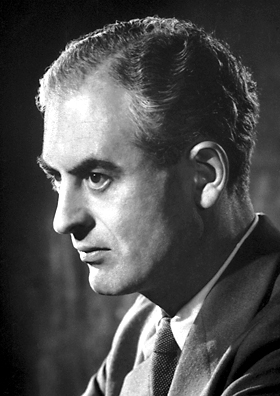
Sir Peter Brian Medawar was a Brazilian-British biologist and writer, whose works on graft rejection and the discovery of acquired immune tolerance have been fundamental to the medical practice of tissue and organ transplants. For his scientific works, he is regarded as the "father of transplantation". He is remembered for his wit both in person and in popular writings. Richard Dawkins referred to him as "the wittiest of all scientific writers"; Stephen Jay Gould as "the cleverest man I have ever known".

The Copley Medal is the most prestigious award of the Royal Society, conferred "for sustained, outstanding achievements in any field of science". It alternates between the physical sciences or mathematics and the biological sciences. Given annually, the medal is the oldest Royal Society medal awarded and the oldest surviving scientific award in the world, having first been given in 1731 to Stephen Gray, for "his new Electrical Experiments: – as an encouragement to him for the readiness he has always shown in obliging the Society with his discoveries and improvements in this part of Natural Knowledge". The medal in its current format is made of silver-gilt and awarded with a £25,000 prize.
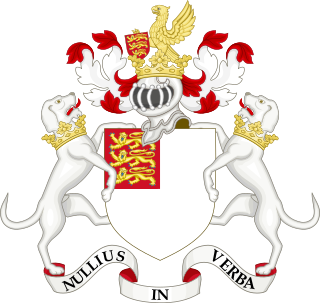
The Royal Society, formally The Royal Society of London for Improving Natural Knowledge, is a learned society and the United Kingdom's national academy of sciences. The society fulfils a number of roles: promoting science and its benefits, recognising excellence in science, supporting outstanding science, providing scientific advice for policy, education and public engagement and fostering international and global co-operation. Founded on 28 November 1660, it was granted a royal charter by King Charles II as The Royal Society and is the oldest continuously existing scientific academy in the world.
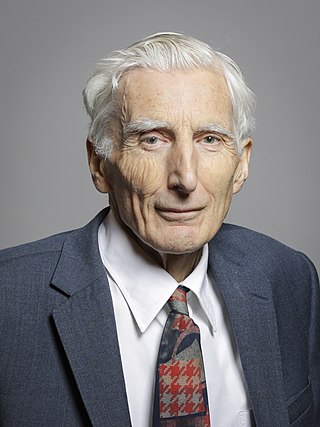
Martin John Rees, Baron Rees of Ludlow is a British cosmologist and astrophysicist. He is the fifteenth Astronomer Royal, appointed in 1995, and was Master of Trinity College, Cambridge, from 2004 to 2012 and President of the Royal Society between 2005 and 2010.
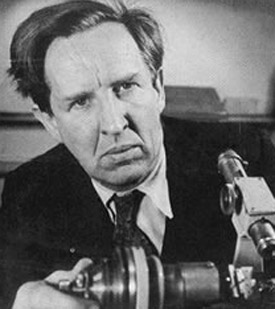
John Desmond Bernal was an Irish scientist who pioneered the use of X-ray crystallography in molecular biology. He published extensively on the history of science. In addition, Bernal wrote popular books on science and society. He was a communist activist and a member of the Communist Party of Great Britain (CPGB).
Jacques Francis Albert Pierre Miller AC FRS FAA is a French-Australian research scientist. He is known for having discovered the function of the thymus and for the identification, in mammalian species of the two major subsets of lymphocytes and their function.
Philip Ball is a British science writer. For over twenty years he has been an editor of the journal Nature, for which he continues to write regularly. He is a regular contributor to Prospect magazine and a columnist for Chemistry World, Nature Materials, and BBC Future.
Alexander Stuart FRS FRCP (1673–1742) was a British natural philosopher and physician.
The Bernal Lecture was an annual lecture on the social function of science organised by the Royal Society of London and endowed by Professor John Desmond Bernal. It was last delivered in 2004, after which it was merged with the Wilkins Lecture and Medawar Lecture to form the Wilkins-Bernal-Medawar Lecture.
The Medawar Lecture was an annual lecture on the philosophy of science organised by the Royal Society of London in memory of Sir Peter Medawar. It was last delivered in 2004 after which it was merged with the Wilkins Lecture and the Bernal Lecture to form the Wilkins-Bernal-Medawar Lecture.
The Wilkins Lecture was a lecture organised by the Royal Society of London on the subject of the history of science and named after John Wilkins, the first Secretary of the Society. The last Wilkins lecture was delivered in 2003, after which it was merged with the Bernal Lecture and the Medawar Lecture to form the Wilkins-Bernal-Medawar Lecture.
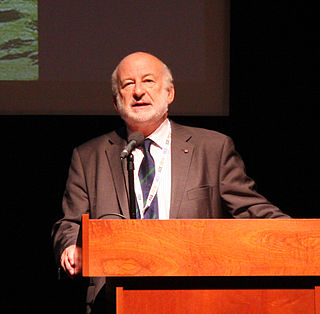
John Anthony Pickett CBE DSC FRS FLSW is a British chemist who is noted for his work on insect pheromones. Pickett is Professor of Biological Chemistry in the School of Chemistry at Cardiff University. He previously served as the Michael Elliott Distinguished Research Fellow at Rothamsted Research.

Victoria Michelle Kaspi is a Canadian astrophysicist and a professor at McGill University. Her research primarily concerns neutron stars and pulsars.
The Wilkins-Bernal-Medawar Lecture is a public lecture organised annually by the Royal Society of London.

Ronald Alfred LaskeyFLSW is a British cell biologist and cancer researcher.

June Barrow-Green is a professor of History of Mathematics at the Open University and a visiting professor at the London School of Economics.
Michela Massimi is an Italian and British philosopher of science, a professor of philosophy at the University of Edinburgh, and the president-elect of the Philosophy of Science Association. Her research has involved scientific perspectivism and perspectival realism, the Pauli exclusion principle, and the work of Immanuel Kant.










